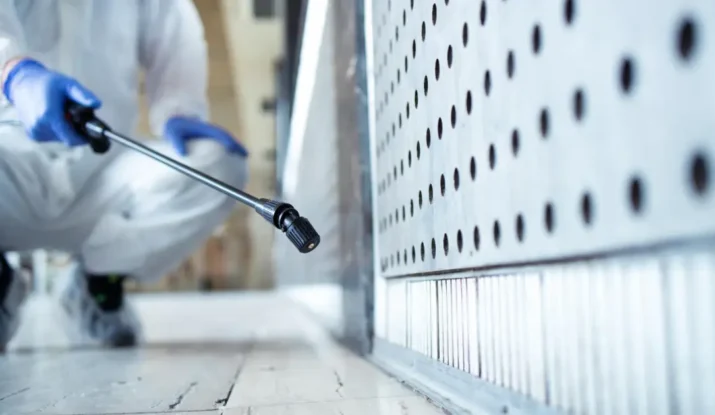Introduction
Homeowners often find dealing with pests to be an aggravating and anxiety-inducing ordeal. The conventional reliance on pest control methods that employ harsh chemicals not only poses risks to the environment but also to human health. However, there is a burgeoning interest in eco-friendly pest control alternatives that prioritize natural and sustainable approaches for efficient pest management. This article aims to delve into a diverse range of eco-friendly pest control methods that are essential knowledge for every homeowner.
Why Eco-Friendly Pest Control is Important
The significance of eco-friendly pest control cannot be emphasized enough. In contrast to chemical-based pesticides, eco-friendly methods significantly reduce the adverse impact on the environment. Chemical pesticides can contaminate water sources, harm beneficial insects, and disrupt ecosystems. By opting for eco-friendly alternatives, homeowners contribute to a healthier and more sustainable environment. Moreover, eco-friendly pest control options prioritize the safety of both humans and pets, reducing the risk of exposure to harmful chemicals.
Common Eco-Friendly Pest Control Methods
Prevention and Maintenance
One of the key principles of eco-friendly pest control is prevention. By taking proactive measures, homeowners can reduce the likelihood of pest infestations. This involves sealing cracks and crevices, maintaining cleanliness, and proper food storage. Regular maintenance activities like cleaning gutters, trimming vegetation, and fixing leaks also play a crucial role in preventing pests from entering the home.
Natural Repellents
Natural repellents offer an effective and eco-friendly way to deter pests from invading your home. Essential oils derived from plants such as peppermint, lavender, and citronella have proven repellent properties against insects like ants, mosquitoes, and flies. These natural repellents can be used in the form of sprays or strategically placed to create a pest-free environment.
Biological Pest Control
Biological pest control involves utilizing natural predators, parasites, or pathogens to control pest populations. For instance, ladybugs are known to feed on aphids, effectively managing their numbers in gardens. Similarly, nematodes can be employed to target and eliminate soil-dwelling pests like grubs. Biological pest control methods offer a sustainable and long-term solution to pest management.
Integrated Pest Management (IPM)
Integrated Pest Management (IPM) is an approach that combines various pest control techniques to achieve effective and environmentally friendly results. It involves careful monitoring of pest populations, identification of pest species, and the use of targeted control methods. IPM strategies prioritize the judicious use of pesticides as a last resort, with a preference for non-chemical alternatives.
Physical Barriers
Installing physical barriers is an eco-friendly method to keep pests out of your home. This can include the use of screens on windows and doors to prevent insect entry, sealing gaps in walls and foundations, and installing bird netting or fencing to protect crops from animals. These barriers serve as proactive measures to prevent pests from infiltrating your living spaces.
Benefits of Eco-Friendly Pest Control
Implementing eco-friendly pest control methods offers numerous benefits. Firstly, it promotes a safer and healthier living environment by reducing exposure to toxic chemicals. Additionally, eco-friendly pest control methods are often more sustainable in the long run. By focusing on prevention and natural control methods, homeowners can reduce their reliance on chemical pesticides, minimizing the environmental impact. Furthermore, There are also eco-friendly pest control services which help preserve beneficial insects and maintain a balanced ecosystem.
Tips for Implementing Eco-Friendly Pest Control
To effectively implement eco-friendly pest control, consider the following tips:
- Accurately identify pests to determine the most suitable control methods.
- Maintain cleanliness and eliminate potential pest habitats.
- Strategically use natural repellents and deterrents.
- Explore biological control options that are compatible with your environment.
- Embrace integrated pest management strategies and seek professional advice when needed.
Conclusion
Choosing eco-friendly pest control options is not only beneficial for the environment but also for homeowners and their families. By implementing prevention measures, utilizing natural repellents, adopting biological control methods, practising IPM, and installing physical barriers, homeowners can effectively manage pests without relying on harmful chemicals. Embracing eco-friendly pest control is a responsible choice that promotes a sustainable and healthy living environment.
FAQs
Are eco-friendly pest control methods as effective as chemical-based methods?
Yes, eco-friendly pest control methods can be equally effective when implemented correctly. While they may require a slightly different approach, these methods prioritize long-term solutions and sustainable pest management.
Can I implement eco-friendly pest control on my own?
Yes, many eco-friendly pest control methods can be implemented by homeowners. However, for complex infestations or larger properties, it is advisable to seek professional advice from pest control experts specializing in eco-friendly practices.
How long does it take to see results with eco-friendly pest control methods?
The time it takes to see results with eco-friendly pest control methods can vary depending on the pest species and the chosen method. In general, it may take a few days to several weeks to observe a significant reduction in pest populations. Patience and consistency are key for successful pest management.

